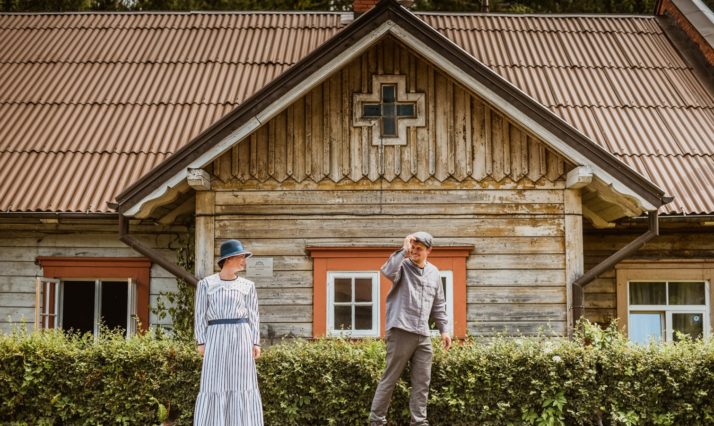RURAL CULTURAL PLANNING

How can smaller towns and rural communities take full advantage of the areas’ locality, history, tradition, skills and strengths?
RuralCulturalPlanning is born out of the experience and knowledge accumulated in the recently concluded Interreg BSR project UrbCulturalPlanning (2019-2021). From this project, the method ‘Cultural Planning’ will be transferred into the new project. The method can enhance the capacity of public authorities to deal with complex societal problems in rural areas, such as:
- depopulation,
- lack of job opportunities,
- declining quality of life
by ensuring the participation of citizens and the cultural and creative sector.
RuralCulturalPlanning will share the same ideas and values as UrbCulturalPlanning, with regard to citizen-to-citizen and citizen-to-city interaction.
The method of cultural planning will be made suitable for rural areas and will concentrate on the areas’ locality, history, tradition, skills and strengths.
Smaller towns and rural communities offer many advantages which cities lack, such as easy access to nature, local traditions and skills, place-based food systems, etc. However, to take full advantage of the rebalancing between the urban and the rural, smaller rural communities need to activate or attract resources and ideas. Here, the Cultural Planning method will come into play.
RurCulturalPlanning will focus on four tasks:
- Anchoring the Cultural Planning method as a policy instrument with relevant policy makers dealing with rural development;
- Transferring the knowledge and methods accumulated and tested in UrbCultural to agents of change in rural areas;
- Adapting the Cultural Planning method to rural BSR typologies by setting up pilot projects (Community Mapping);
- Expanding the BSR network of practitioners based on the Hubs of Excellence created as a result of UrbCulturalPlanning.
Pilot projects
RuralCulturalPlanning will begin as a pilot project in one municipality per partner country (DK, LV, and LT) which means 3 municipalities in total. In Latvia, the chosen territory for the pilot project is located in the city of Ligatne in the region Vidzeme.
Beside its beautiful nature surroundings, the city has its mill and wooden houses as historical buildings. Ligatne has also been the winner of European Destinations of Excellency (EDEN).
In Denmark the chosen municipality is Billund’s Museums of Municipalities (Billund Kommunes Museer), who is interested in implementing the project as part of their new museum standards and experiences, and to make cultural history relevant and provide new insight and perspective on the world – to engage people in our common future.
With RuralCulturalPlanning the organization has a chance to reach even more citizens and tourists of which will get to learn about Billund’s cultural history.
The chosen town in Lithuania will be Papilė which is located in the Samogitia region in Northen Lithuania. It is a small town with a population of 827 habitants, where the local life is shaped by farming activities, and the town has also got cultural and educational infrastructure. Meandering through the heart of Papilė, the Venta river has shaped the location’s character significantly. Papilė stands on the geological layer of the Jurassic period rich with fossils and ammonites of prehistoric creatures.